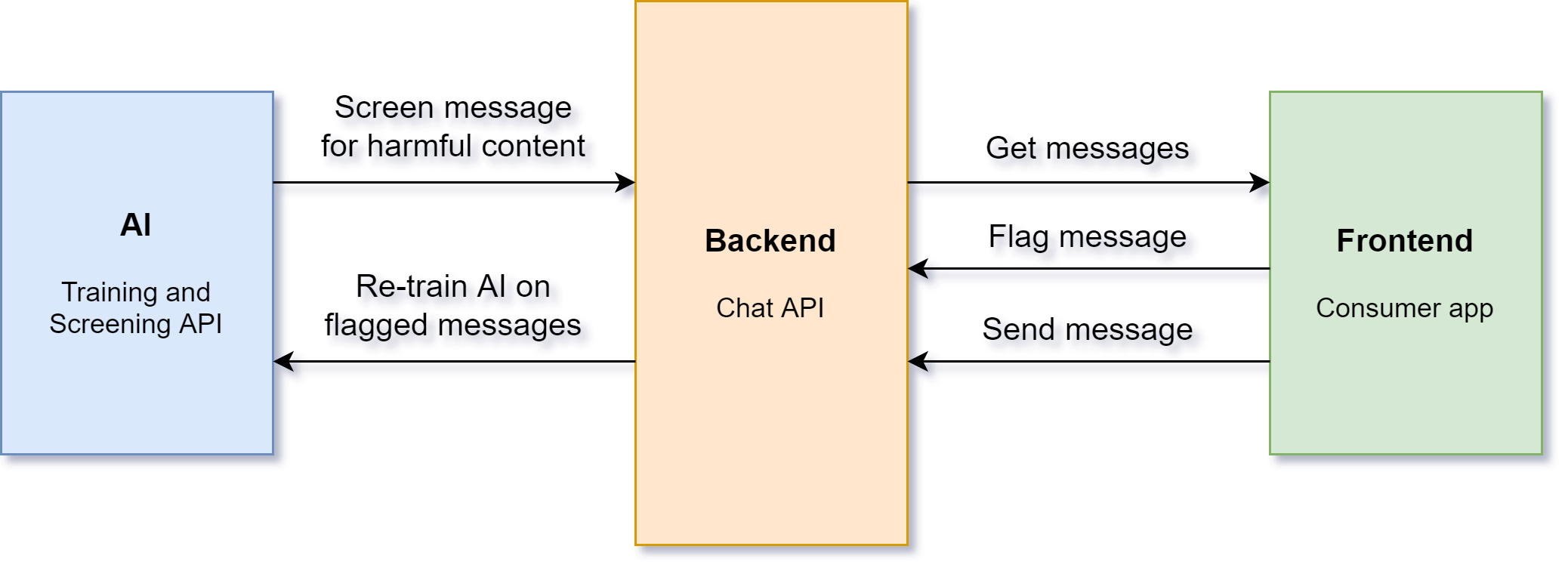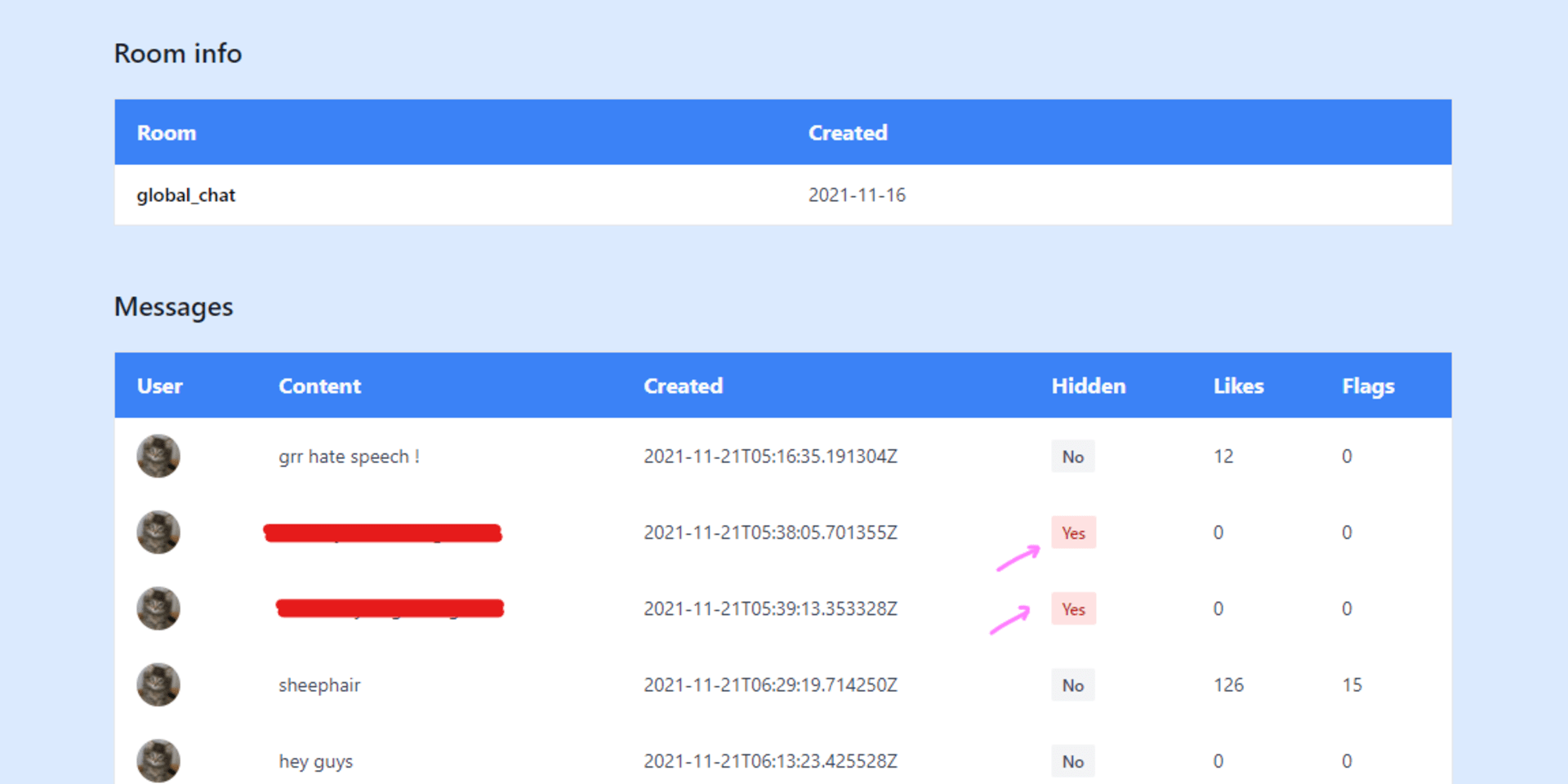
Junction 2021
November 21, 2021 · Hackathons
Programmable chat API with adaptive hate speech filtering
Project
KeepChat is an in-game chat service with superpowers, making the chat space friendly for everyone. Our vision is to keep chat safe and inclusive, without requiring constant attention from moderators.
At a high level, KeepChat consists of a three-tier architecture.

At the core of the system is the chat API, which handles the business logic of the chat rooms. This includes storing messages, processing new messages from users, and processing flags.
When a new message is processed, the chat API asks the training and screening API whether the message should be filtered. The AI responds with a True or False, and the backend will filter the message accordingly before storing it.

When a flag is processed, the chat API tells the AI to add the flagged message to its bank of harmful messages, and then re-train on this data. We envision expanding on this by requiring a certain number of flags or total user sociability score in order to add the message to the training data.
In order to demonstrate this functionality, a frontend consumer application communicates with the backend by using its chat endpoints.
This demonstrates the plug-and-play nature of the application; integrating KeepChat into an existing application is incredibly simple, as screening messages and re-training on flagged messages is built-in to the service.
Teamwork
By splitting the project into the architecture mentioned prior, we were able to divide our team effectively. This involved giving individual team members ownership over some part of the system, and then exposing each part through a REST API, which kept the system loosely coupled.
The end result was a high development velocity within the team.
We leveraged Git and GitHub in order to distribute code between team members. It's important to prevent code-breaking changes from being pushed in a time-critical project, as these can block an entire team while the bug is fixed.
Therefore, any code changes went through a pull request, and we leveraged GitHub Actions in order to run quick code quality checks before accepting a PR.

Results
We didn't bring home the bacon this time. Interestingly, the winner of our challenge also built a chat service with adaptive filtering, including the ability to re-train on reported messages.
However, they managed to deploy their system to Google Cloud Platform, and provided a link to use their application. Considering the product-focused nature of the hackathon, we should have aimed to put our application online.
Results aside, I would definitely call this weekend a success. We managed to effectively execute on an identical product scope to the challenge winners, which validates our project on both the technical and product level.

Go KeepChat!
Resources
- Source code